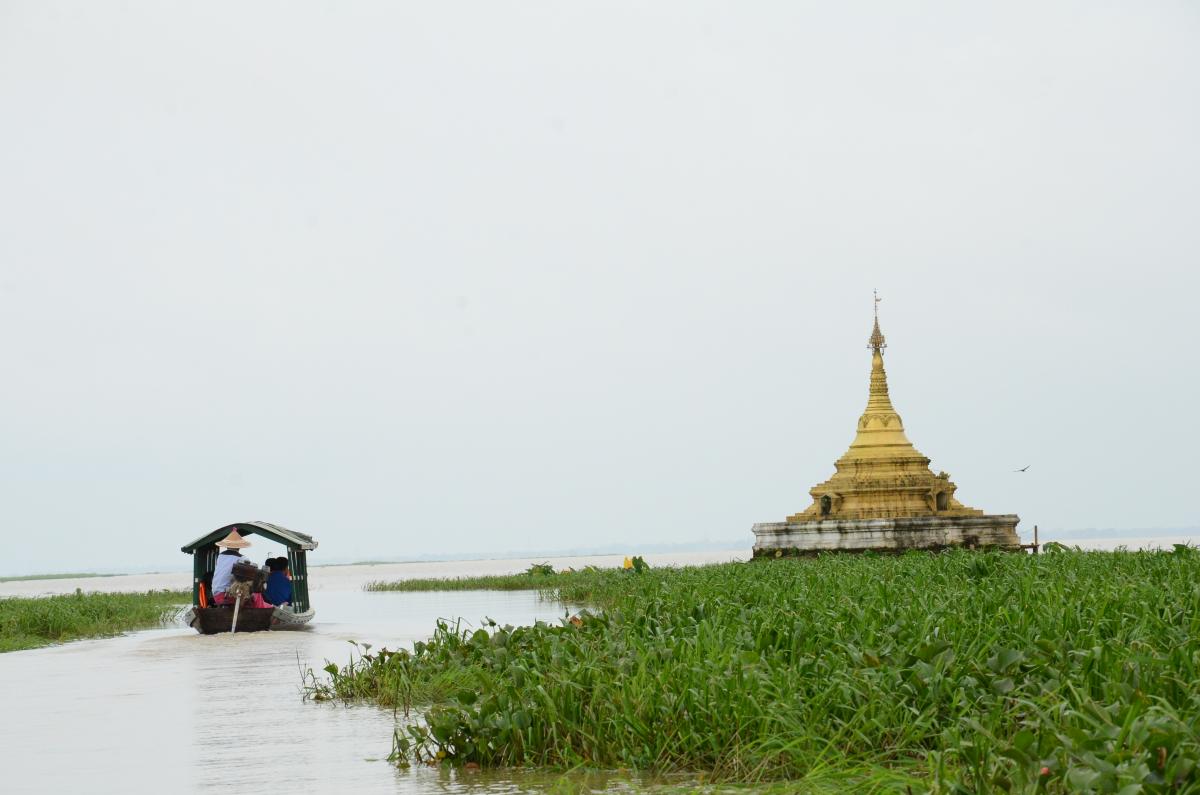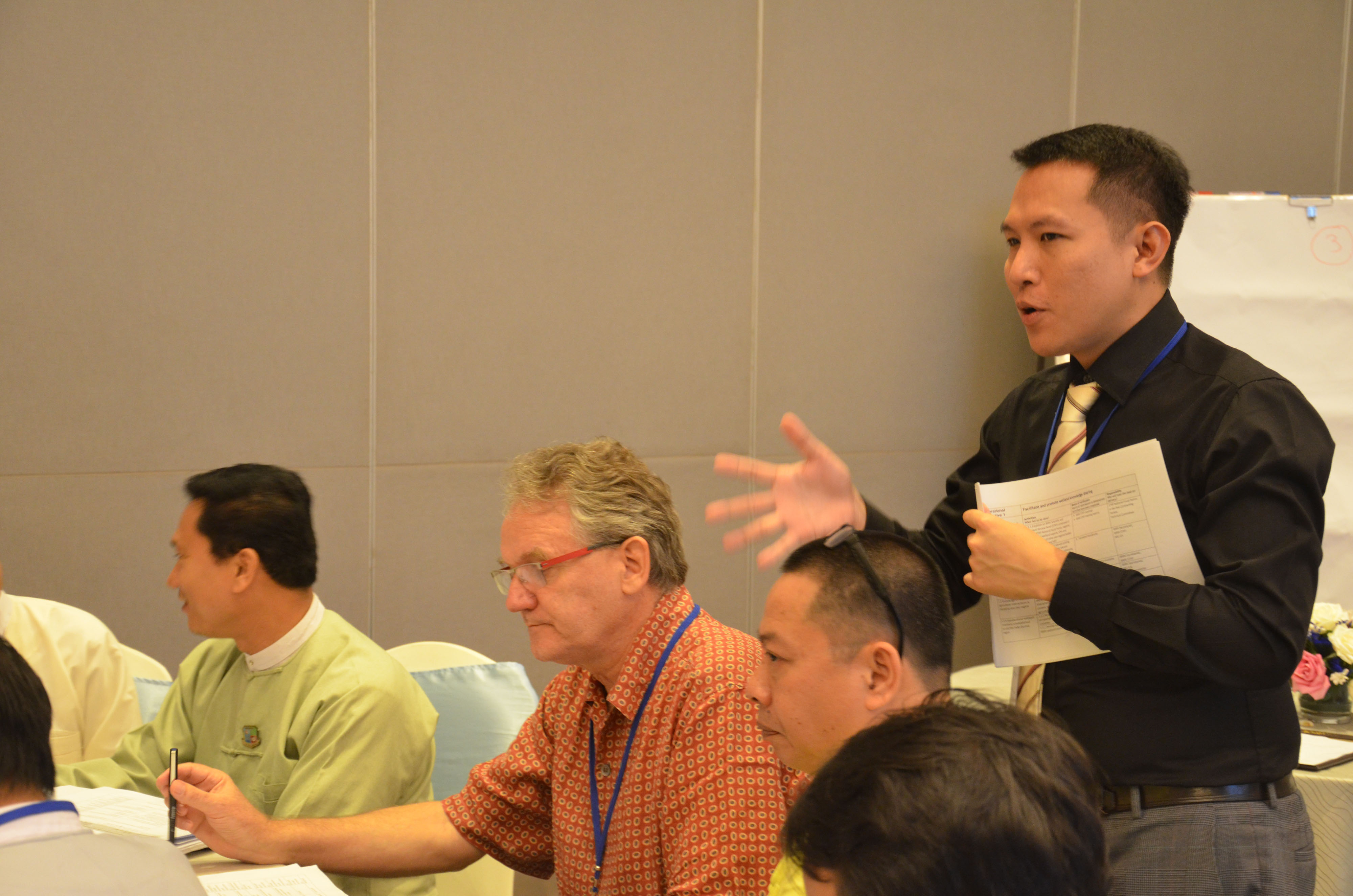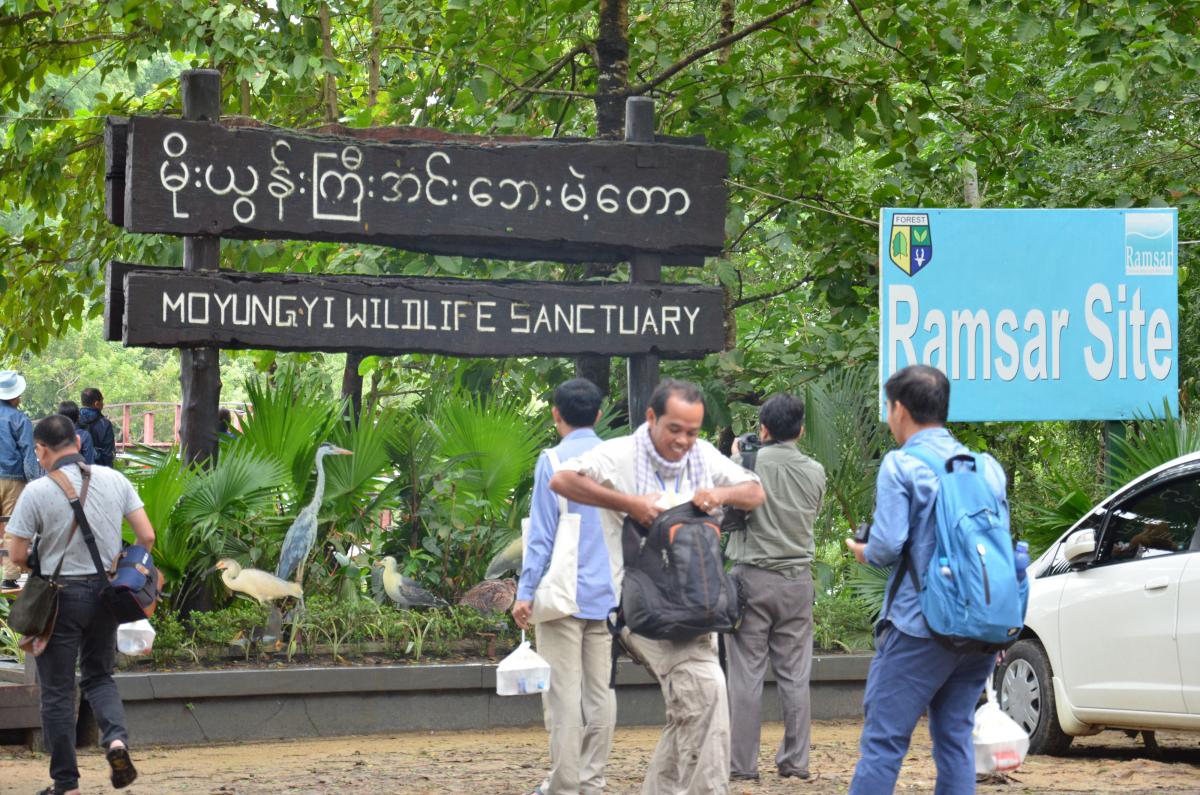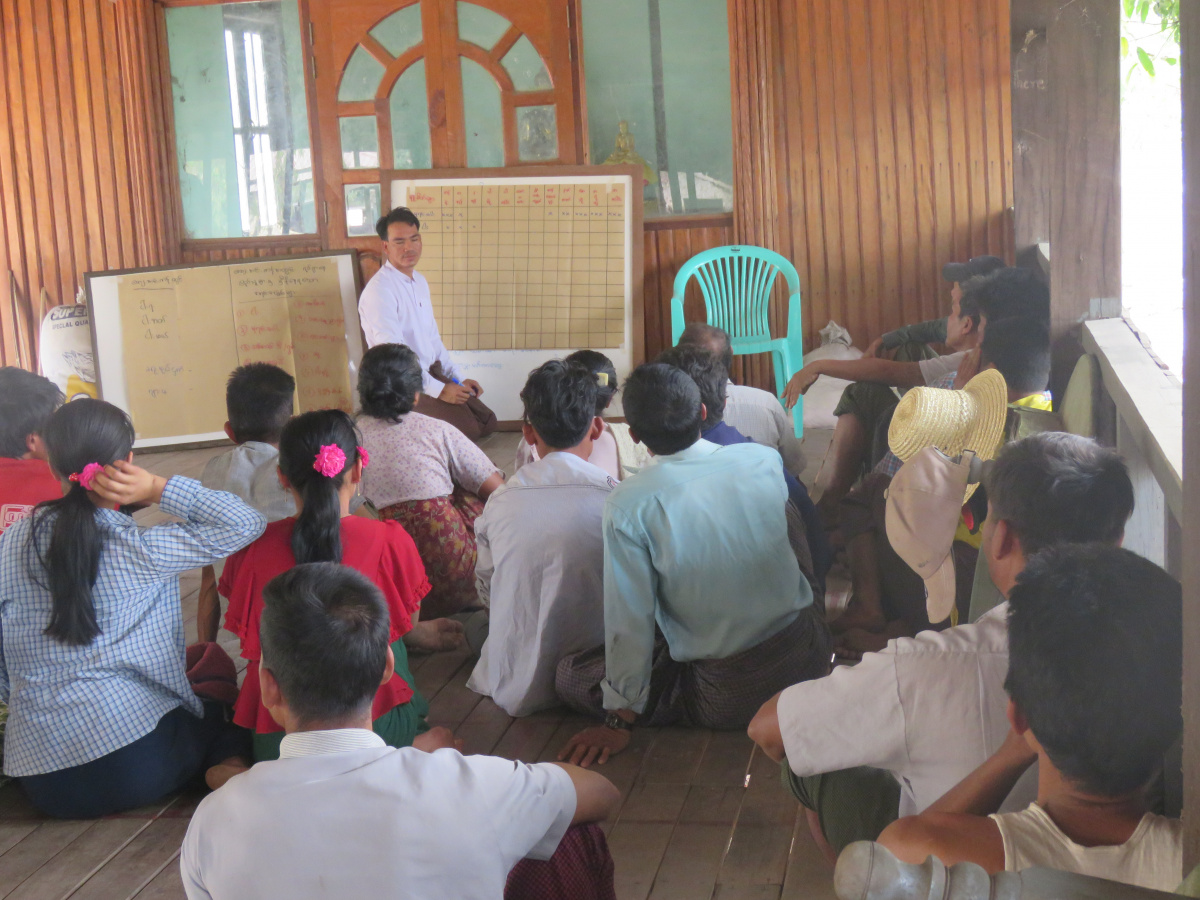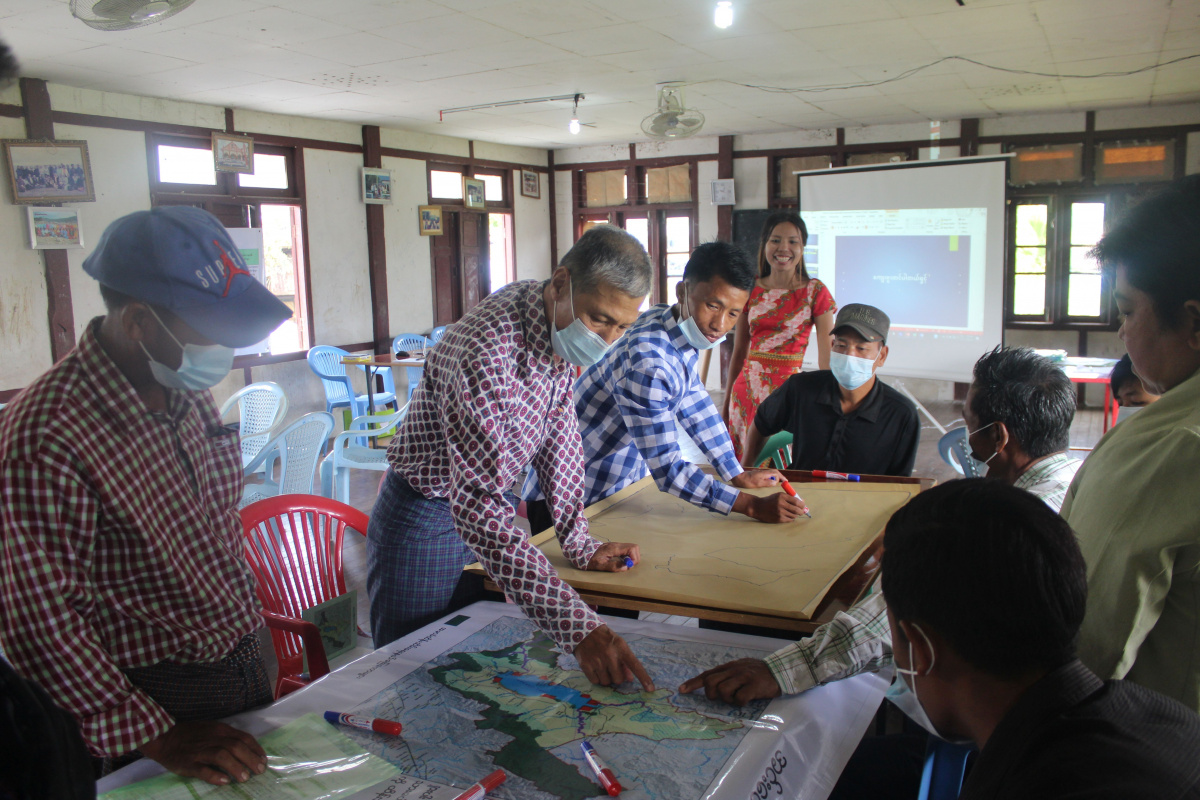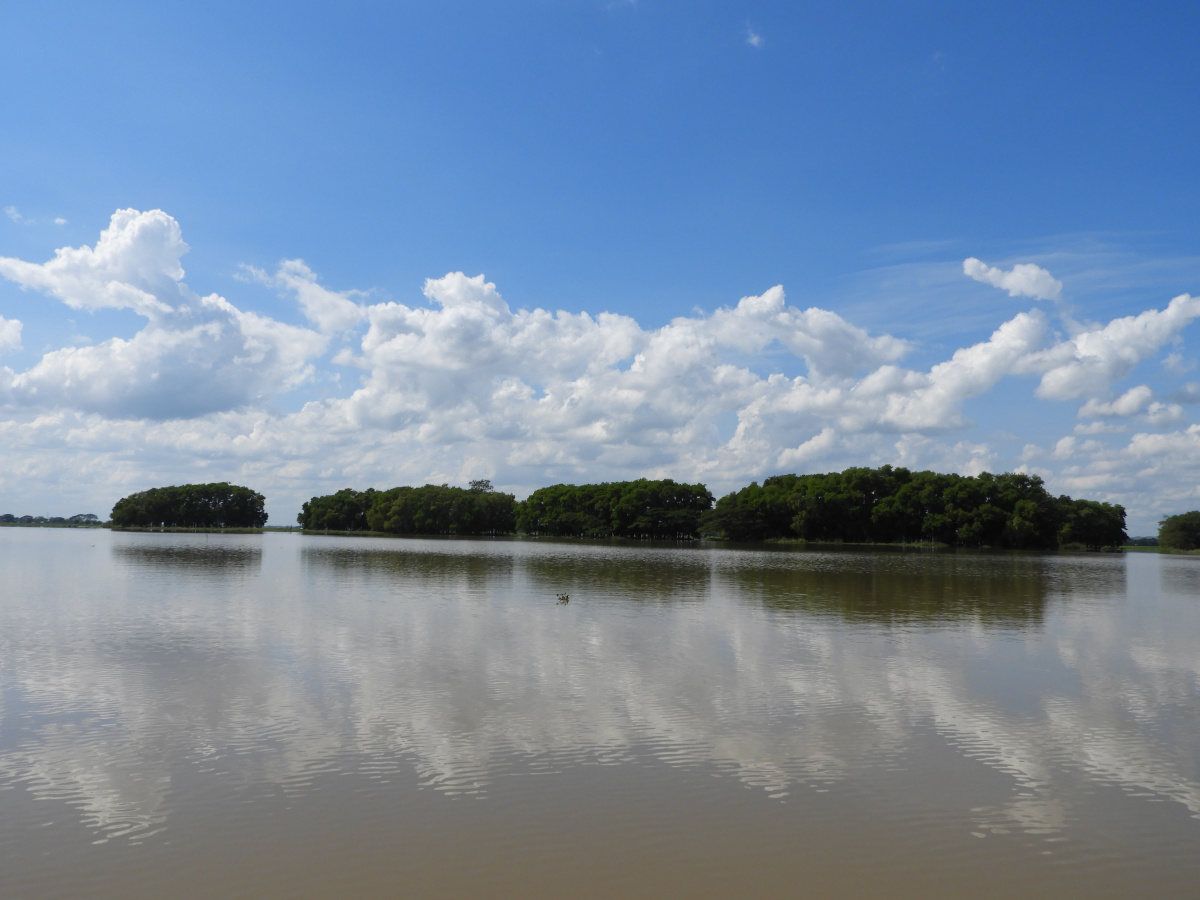Shaping the future: Indo-Burma’s wetlands experts rework Ramsar Regional Strategic Plan
Members and partners of the Indo-Burma Ramsar Regional Initiative (IBRRI), including government representatives, academics, international organisation partners of Ramsar and others, gathered in Yangon in late July to workshop the IBRRI Strategic Plan for Cambodia, Lao PDR, Myanmar, Thailand and Viet Nam. These IBRRI stakeholders discussed the content of the first draft of the plan, as well as its role in both supporting the Ramsar Convention, and also in shaping it.
The plan’s overarching goal is to support an improved implementation of the Ramsar Convention in the region. Its specific objectives are to facilitate and promote wetland knowledge sharing; support wetland site management; assist with wetland policy development; and support communication, capacity building, education, participation and awareness on wetlands. The plan, which will support the global Ramsar Strategic Plan at the regional level, will run from 2019 to 2024.
“The IBRRI Strategic Plan will ensure that the five countries work in a coordinated manner,” said Dr Srey Suleang, IBRRI Chair and Ramsar National Focal Point for Cambodia, “to not only conserve wetland ecosystems and species, but also to ensure that regional, national and local policies and plans account for the services these ecosystems provide to people’s livelihoods.”
As the Ramsar Convention promotes wise use of wetlands, the Strategic Plan is designed to identify and enhance, at a regional scale, the numerous benefits local communities and societies receive from wetland ecosystems. The need for a better management framework at the site level, ensuring the enhancement of livelihoods and the inclusion of communities in governance, underpinned all discussions.
During the workshop, participants also proposed multi-level capacity-building programmes supported by IBRRI, along with the development and translation of technical guidelines on wetlands conservation and management, and the publication of a regional version of the Ramsar Scientific and Technical Review Panel’s Global Wetlands Outlook.
 Raphael Glemet (far left), IUCN Asia, and delegates from Myanmar discuss the IBRRI Strategic Plan
Photo: © Elaine Mumford / IUCN
Raphael Glemet (far left), IUCN Asia, and delegates from Myanmar discuss the IBRRI Strategic Plan
Photo: © Elaine Mumford / IUCN
Additionally, Participants identified opportunities to coordinate site designation between countries, to account for the connectivity of sites and species across geo-political borders. They also proposed that a wide variety of model Ramsar sites in the region be identified. The need for a harmonised wetland-related policy framework in the region was highlighted, and decisions were made to conduct policy reviews and to organise regional policy forums and dialogues.
Existing regional platforms – the Mekong River Commission (MRC) and the Association of Southeast Asian Nations (ASEAN), as well as other Ramsar Regional Initiatives such as the East Asian-Australasian Flyway Partnership (EAAFP) and the Ramsar Regional Centre - East Asia (RRC-EA) – will play a large role in co-implementing the plan. In addition, endorsement processes and mechanisms will need to be in place to ensure that the plan will act as an official document, closely linked to national policies and plans.
“Acting as secretariat for the IBRRI, IUCN is very pleased to see this process going so well,” said Raphael Glemet, Senior Programme officer for Water and Wetlands at IUCN Asia. “Once adopted and implemented, the IBRRI strategic plan will act as a regional road map on Ramsar, enabling cooperation, exchange and monitoring of the effectiveness of the convention at regional level.”
Over the next few months, the Strategic Plan will undergo a final review by IBRRI members and partners. The launch of the plan at the Ramsar Conference of Parties (COP 13) in October will be a milestone for the coordinated implementation of the Ramsar Convention in Indo-Burma.
The Indo-Burma Ramsar Regional Initiative (IBRRI) was launched in June 2016, under the leadership of the governments of Cambodia, Lao PDR, Myanmar, Thailand and Viet Nam, who are contracting parties of Ramsar. IUCN Asia acts as the secretariat for the initiative.
Ramsar Regional Initiatives (RRIs) under the Ramsar Convention are intended as operational means to provide effective support for an improved implementation of the objectives of the Convention and its Strategic Plan in specific geographical regions, through international cooperation on wetland-related issues of common concern. Regional Initiatives provide an enabling environment for the involvement of all stakeholders at all levels, including the ministries responsible for the environment and water issues, intergovernmental bodies, Ramsar International Organisation Partners (IOPs), other NGOs, academia, local communities, and economic actors. They provide a platform for governments, technical experts, international NGOs, local communities and private companies to collaborate on the governance and administration of the Ramsar Convention.
For more information, please contact:
Raphael GLEMET
IUCN Asia Regional Office
raphael.glemet@iucn.org
Tel: +66 2 662 4029 (ext. 138)
Fax: +66 2 662 4387
